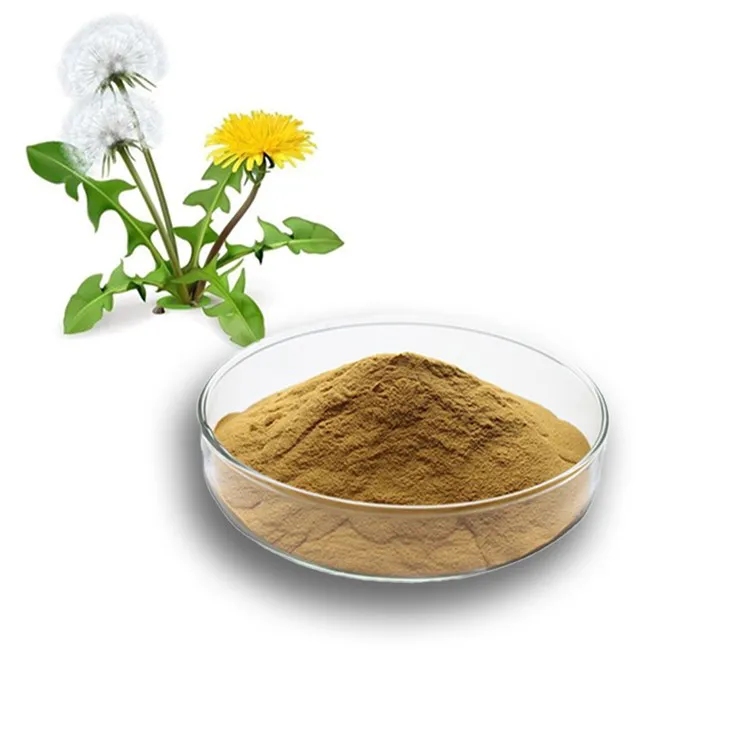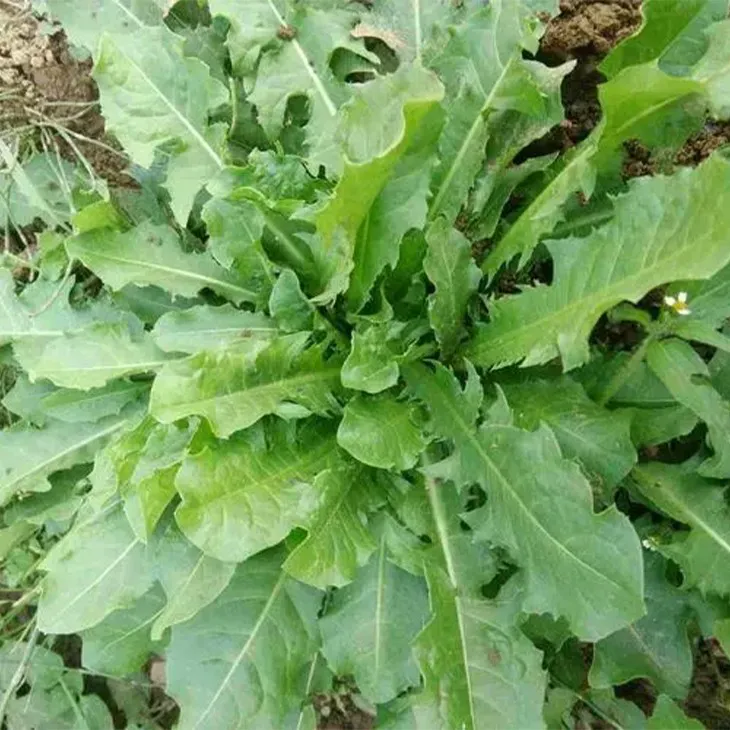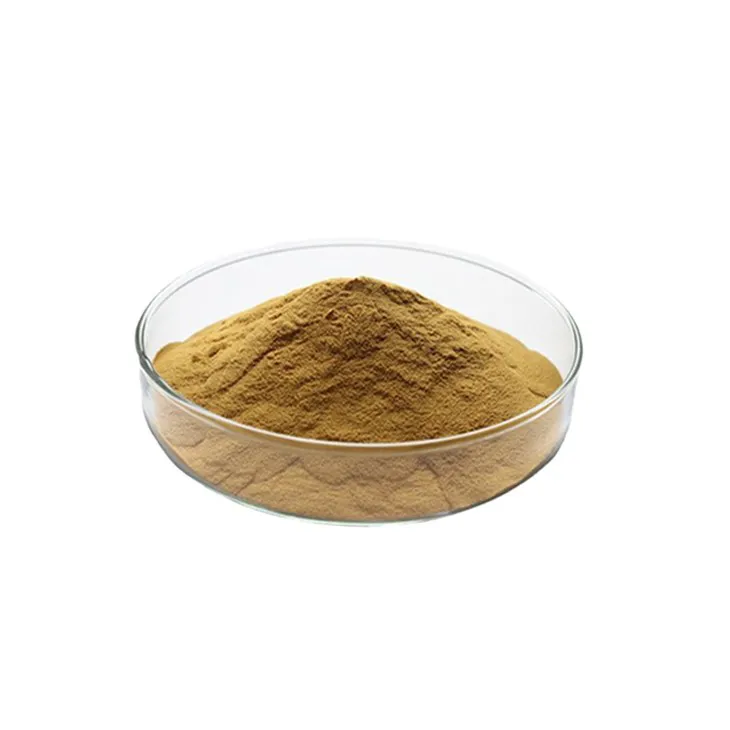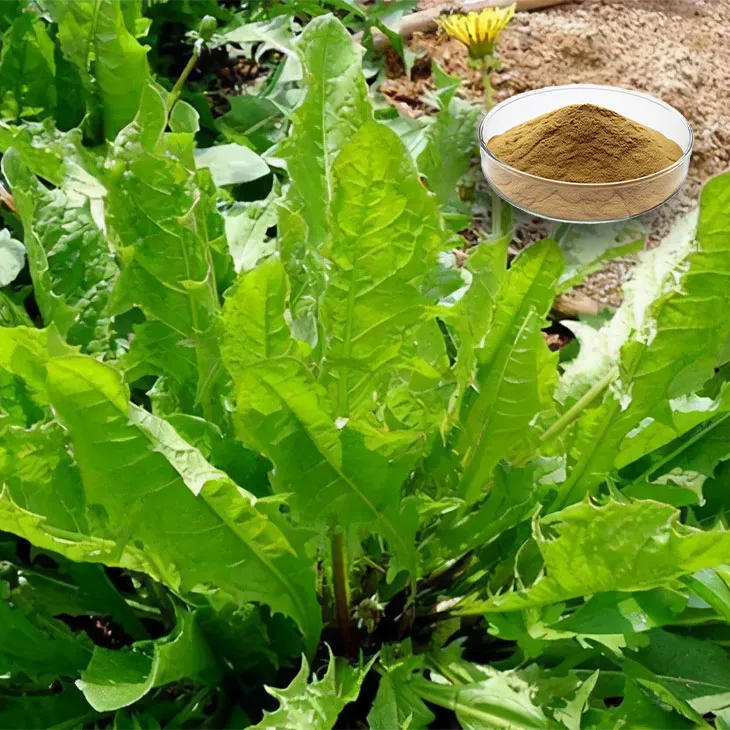- 0086-571-85302990
- sales@greenskybio.com
Modern Medicine Meets Nature: Dandelion Leaf Extract in Health Care
2024-07-04

1. Introduction to Dandelion Leaf Extract in Modern Healthcare
Modern medicine is on an ever - evolving journey, constantly seeking new ways to improve health and well - being. One of the most fascinating areas of exploration is the use of natural substances, and Dandelion Leaf Extract stands out as a remarkable example. In the realm of healthcare, Dandelion Leaf Extract has emerged as a topic of great interest due to its potential to offer a wide range of health benefits. It represents a bridge between the traditional knowledge of nature's remedies and the scientific advancements of modern medicine.

2. Antibacterial Properties of Dandelion Leaf Extract
2.1. The Need for Alternatives to Synthetic Antibiotics In recent years, the overuse of synthetic antibiotics has led to the emergence of antibiotic - resistant bacteria, which is a major global health concern. This has spurred the search for alternative antibacterial agents. Dandelion leaf extract has shown promise in this regard.
2.2. Mechanisms of Antibacterial Action Studies have suggested that dandelion leaf extract contains various compounds that may contribute to its antibacterial properties. These compounds may interfere with the growth and reproduction of bacteria. For example, some components in the extract might disrupt the bacterial cell wall or inhibit essential metabolic processes within the bacteria.
2.3. Potential Applications in Fighting Infections Dandelion leaf extract could potentially be used in the treatment of minor infections, especially those that are becoming resistant to traditional antibiotics. It may also be used in combination with other antibacterial agents to enhance their effectiveness. However, more research is needed to fully understand its potential in clinical settings.

3. Dandelion Leaf Extract and Digestive Health
3.1. The Importance of Gut Health A healthy gut is essential for overall well - being. It is home to trillions of bacteria, known as the gut microbiota, which play crucial roles in digestion, nutrient absorption, and immune function. Any imbalance in the gut microbiota can lead to various digestive problems and other health issues.
3.2. How Dandelion Leaf Extract Affects Gut Function Dandelion leaf extract may promote gut health in several ways. It has been suggested that it can stimulate the growth of beneficial bacteria in the gut. This can help in maintaining a balanced gut microbiota. Additionally, it may also have a mild laxative effect, which can aid in regular bowel movements and prevent constipation.
3.3. Incorporating Dandelion Leaf Extract into a Digestive Health Regimen There are various ways to incorporate dandelion leaf extract into a diet for better digestive health. It can be consumed as a tea, which is a popular and easy - to - prepare form. Some dietary supplements also contain dandelion leaf extract. However, it is important to consult a healthcare provider before starting any new supplement regimen, especially for those with pre - existing digestive conditions.

4. Dandelion Leaf Extract as a Safer Alternative in Modern Healthcare
4.1. Concerns about Medication Side - Effects Many modern medications come with a range of side - effects, some of which can be quite severe. These side - effects can sometimes outweigh the benefits of the treatment, especially in cases of long - term use. For example, some drugs used for chronic conditions may cause liver or kidney damage over time.
4.2. The Safety Profile of Dandelion Leaf Extract In contrast, dandelion leaf extract is generally considered to be safe when used appropriately. It is a natural product, and while it may cause mild side - effects in some individuals, such as allergic reactions or mild gastrointestinal discomfort, these are relatively rare compared to the side - effects of many synthetic medications.
4.3. Potential for Reducing Reliance on Synthetic Medications Dandelion leaf extract has the potential to reduce the need for some synthetic medications, especially in cases where the condition can be managed with natural alternatives. For example, in cases of mild digestive disorders or minor infections, it may be possible to use dandelion leaf extract instead of more potent synthetic drugs, thereby reducing the risk of side - effects.

5. Challenges and Future Directions
5.1. Standardization of Dandelion Leaf Extract One of the major challenges in the use of dandelion leaf extract in healthcare is the lack of standardization. Different products may contain varying amounts of active compounds, which can make it difficult to determine the appropriate dosage and ensure consistent results. Future research should focus on developing standardized extraction methods and quality control measures.
5.2. Clinical Trials and Evidence - Based Medicine While there have been some studies on the potential health benefits of dandelion leaf extract, more large - scale clinical trials are needed. These trials will help to establish the effectiveness of dandelion leaf extract in a more conclusive manner and provide evidence - based guidelines for its use in healthcare.
5.3. Integration with Conventional Medicine Another important aspect is the integration of dandelion leaf extract with conventional medicine. Healthcare providers need to be educated about the potential benefits and limitations of dandelion leaf extract so that they can make informed decisions about incorporating it into treatment plans. This will require more research on the interactions between dandelion leaf extract and other medications.
6. Conclusion
Dandelion leaf extract represents an exciting area of exploration in modern healthcare. Its potential antibacterial properties, benefits for digestive health, and status as a potentially safer alternative to synthetic medications make it a valuable subject of study. However, there are still many challenges to overcome, such as standardization and the need for more clinical trials. As modern medicine continues to embrace the wisdom of nature, dandelion leaf extract has the potential to play an important role in enhancing overall well - being.
FAQ:
What are the main health benefits of dandelion leaf extract?
Dandelion leaf extract has multiple potential health benefits. It has antibacterial properties which may assist in fighting infections. It also may improve gut function from the perspective of digestive health by promoting the growth of beneficial bacteria.
How does dandelion leaf extract compare to synthetic antibiotics?
Dandelion leaf extract has antibacterial properties like synthetic antibiotics. However, it offers a more natural alternative. In modern healthcare, where concerns about the side - effects of synthetic antibiotics exist, dandelion leaf extract may be a better choice as it is a natural product and potentially has fewer side - effects.
Can dandelion leaf extract really improve gut function?
Yes, it may improve gut function. It promotes the growth of beneficial bacteria in the gut, which is important for good digestive health.
Is dandelion leaf extract safe to use?
As a natural product, dandelion leaf extract is generally considered a more natural and potentially safer alternative compared to some medications. However, like any substance, it should be used properly. Excessive use may still cause some adverse reactions, and people with certain allergies or medical conditions should consult a healthcare professional before using it.
How can modern medicine make the best use of dandelion leaf extract?
Modern medicine can incorporate dandelion leaf extract by further studying its properties and potential benefits. For example, more research can be done on its antibacterial mechanism and how it can be used in combination with existing treatments to enhance overall health. Also, standardizing the extraction and dosage methods can help in better utilization in healthcare.
Related literature
- The Potential Health Benefits of Dandelion (Taraxacum officinale) in Herbal Medicine"
- "Dandelion Leaf Extract: A Natural Antibacterial Agent in the Context of Modern Healthcare"
- "Exploring the Role of Dandelion Leaf Extract in Digestive Health Promotion"
- ▶ Hesperidin
- ▶ Citrus Bioflavonoids
- ▶ Plant Extract
- ▶ lycopene
- ▶ Diosmin
- ▶ Grape seed extract
- ▶ Sea buckthorn Juice Powder
- ▶ Fruit Juice Powder
- ▶ Hops Extract
- ▶ Artichoke Extract
- ▶ Mushroom extract
- ▶ Astaxanthin
- ▶ Green Tea Extract
- ▶ Curcumin
- ▶ Horse Chestnut Extract
- ▶ Other Product
- ▶ Boswellia Serrata Extract
- ▶ Resveratrol
- ▶ Marigold Extract
- ▶ Grape Leaf Extract
- ▶ New Product
- ▶ Aminolevulinic acid
- ▶ Cranberry Extract
- ▶ Red Yeast Rice
- ▶ Red Wine Extract
-
Rosemary extract
2024-07-04
-
Lemon Extract
2024-07-04
-
Almond Extract Powder
2024-07-04
-
Elderberry Extract
2024-07-04
-
Tongkat Ali Extract Powder
2024-07-04
-
Genistein
2024-07-04
-
Pine bark Extract Powder
2024-07-04
-
Mulberry leaf Extract
2024-07-04
-
Troxerutin
2024-07-04
-
Kidney Bean Extract
2024-07-04





















